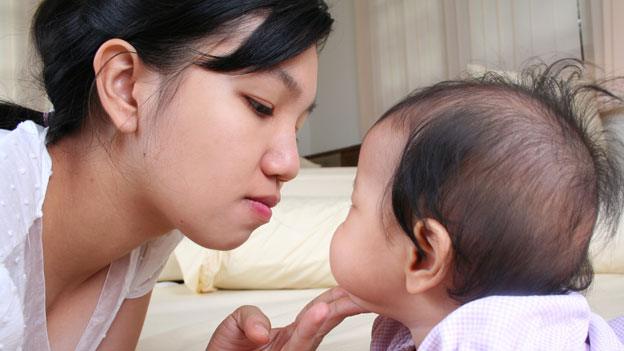The Brazilians winning in Japan
- Published
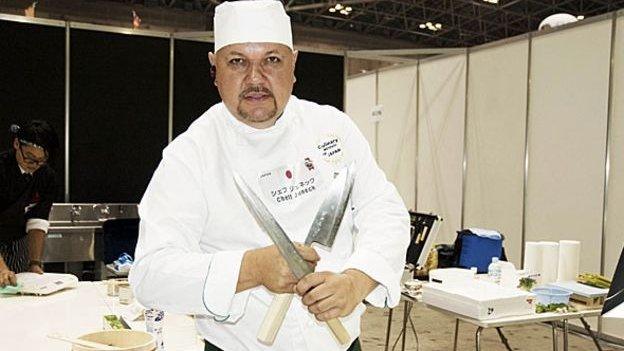
Ricardo Juneck moved from Brazil to Japan 20 years ago and became a master of sushi
Ricardo Juneck enjoys a rare honour among foreigners living in Japan - the 46-year-old Brazilian born chef is a master of sushi and runs a successful catering business.
These days he even teaches Japanese students how to make the national delicacy and more than 2,500 would-be cooks have passed through his culinary training course.
Such is his reputation that last year he was even chosen to be among a group of chefs representing Japan's National Association of Sushi in the "World Cup of Sushi".
"Japan helped to realise my dream," says Mr Juneck. "Today I have a son in college and have won recognition in the area where I have invested all my life's effort."
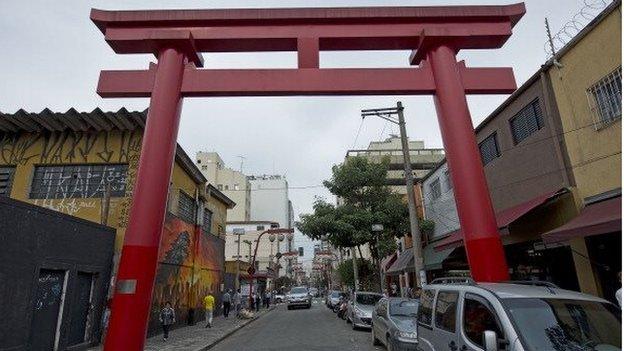
Sao Paulo has a high concentration of Japanese descendants
Migration patterns
Mr Juneck is part of a vibrant two-way cultural connection between Brazil and Japan.
Starting in 1908, hundreds of thousands of Japanese citizens left behind a then troubled economy to start a new life in South America's largest country.
With a strong work ethic and a country rich in natural resources, many made successful lives there. Contrary to their own expectations, many stayed on in Brazil, raising children and grandchildren.
Brazil now has the largest Japanese-descendant population in the world outside of Japan, and it is at its most visible in the famous Liberdade district of Sao Paulo, with its red painted archways and Japanese restaurants.
But when Brazil's economy hit troubled times in the 1980s, this process went into reverse and descendants of Japanese immigrants began to look to Japan, the country of their parents or grandparents, as a land of opportunity.
Initially some went with tourist visas, but in 1990 Japanese law was changed to allow descendants of Japanese citizens long-stay visas and the right to work.
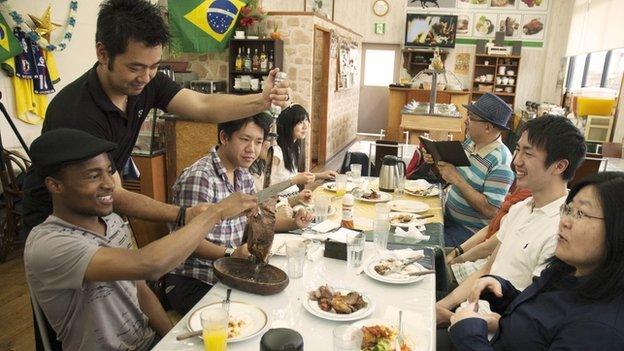
"Churrascaria" in Oizumi, where 10% of the population is Brazilian
'Brazilian town'
In 2008, at the peak of this influx, there were some 320,000 Brazilians of Japanese descent living and working in Japan - a number that has now dropped to around 170,000.
So strong was the South American presence that traditional Brazilian barbecue restaurants known as churrascarias began to appear in Japan.
Such was the concentration of Brazilians in Oizumi, 100km to the north of Tokyo, that it turned into a tourist attraction, becoming known as Japan's "Brazilian town".
Some 10% of the population of just over 40,000 is said to be Brazilian - and busloads of curious Japanese tourists come to get a little taste of South American life.
"They are Japanese of all ages," says Shuichi Ono, from the local tourist association. "The older ones want to try the food, those who are younger take lessons in samba and capoeira [a martial arts dance]."
The Brazilians are known in Japan as "dekassegui", or literally "people who leave home to work in another place".
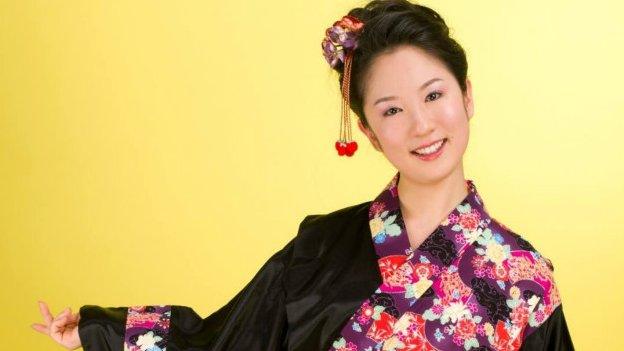
Kamila Miyuki Yamashiro has been in Japan for seven years; she teaches the art of kimono wearing
Kimono champion
And Mr Juneck is not the only Brazilian to teach the Japanese one of their national skills.
Kamila Miyuki Yamashiro, 24, gives lessons at Hakubi Kyoto, one of Japan's most famous schools dedicated to the art of wearing the traditional Kimono.
"I always wore the Kimono in Brazil, but didn't know a lot about it," says Ms Yamashiro, who has now been in Japan seven years and is also a professional singer of Japanese Enka music.
Wearing the Kimono is not as easy as it seems and it took her four years to get the qualification that allows her to teach.
"At the start of this year, I became the youngest teacher in Hakubi," she says proudly.
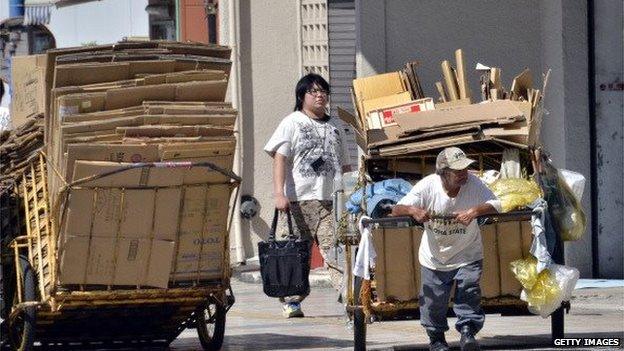
The financial crisis prompted many Brazilians to leave Japan
Some Brazilians of Japanese descent have found it harder to adjust to life in Japan.
"Japan left me a long way from family and friends," says freelance photographer Patricia Rodrigues Shibata, who arrived in 1991 but struggled to adapt. "I was very lonely."
More recent problems in the country, such as the impact of the economic crisis, have prompted many Brazilians to head back home. The 2011 earthquake and tsunami gave added impetus to this process.
Some, however, have stuck it out.
Sueli Guishi, 52, has been in Japan for 22 years and has overcame many challenges, not least ill health and losing a kidney to diabetes. She has now embarked upon an entirely new career as a singer.
"Everyone has problems, but I have learned that the best place in the world is where you live well. Where else could I have started a career as a singer aged 47?"
With such optimism, the strong links between Brazil and Japan are likely to continue for some time to come.
- Published30 March 2015

- Published23 March 2015
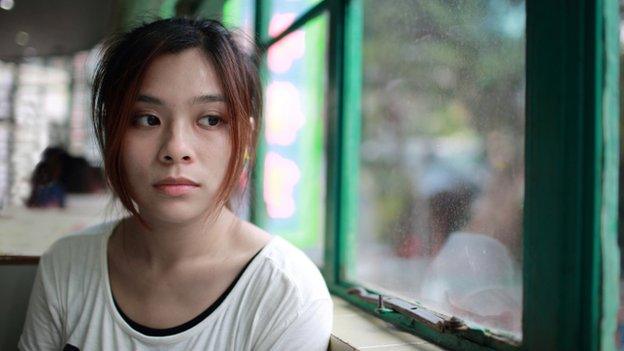
- Published1 January 2015
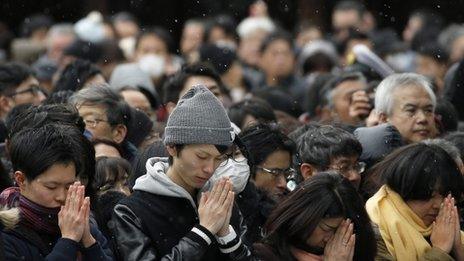
- Published22 March 2013
